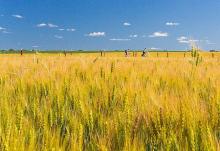Co-op Cooperation in Rural North Carolina: RiverStreet Working with Electric Co-ops
In an effort to find ways to connect some of the state’s most disconnected communities, RiverStreet Networks and North Carolina’s Electric Cooperatives recently announced that they will work together for a series of pilot projects across the state. The initiative has the potential to discover new options for high-quality Internet access for residents and businesses in areas that have been left behind by national Internet service providers.
Going All Out
North Carolina’s RiverStreet Networks is bent on bringing high-quality connectivity to people living and working in rural North Carolina. After expanding their physical infrastructure through deployment, the communications cooperative started to acquire other fiber networks in various areas across the state. Most recently, RiverStreet merged with TriCounty Telephone Membership Corporation.
For RiverStreet, branching out among areas of the state were there is no high-speed Internet access is an opportunity to tap into an underserved market, not only an underserved population. It’s become obvious in recent years that rural communities want high-quality Internet access at least as fervently as in densely populated areas where big corporate ISP already have a monopoly. After upgrading their own members, RiverStreet was looking for growth; partnering with electric cooperatives is the next step to reaching more subscribers.
Listen to RiverStreet’s Greg Coltrain and Christopher discuss the merger and RiverStreet's plans to bring broadband to rural North Carolina:




